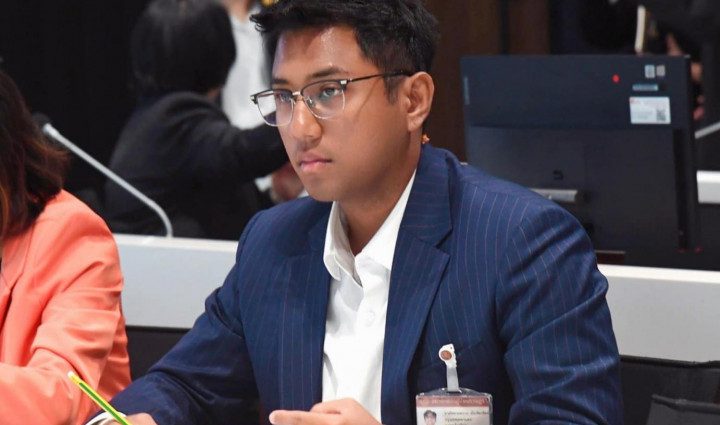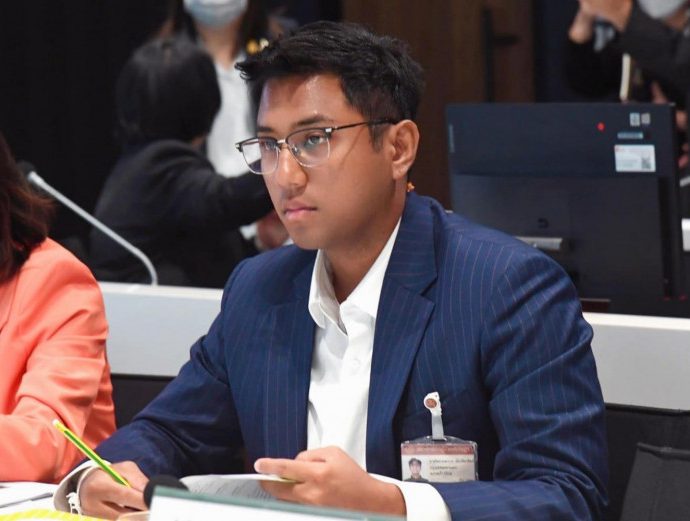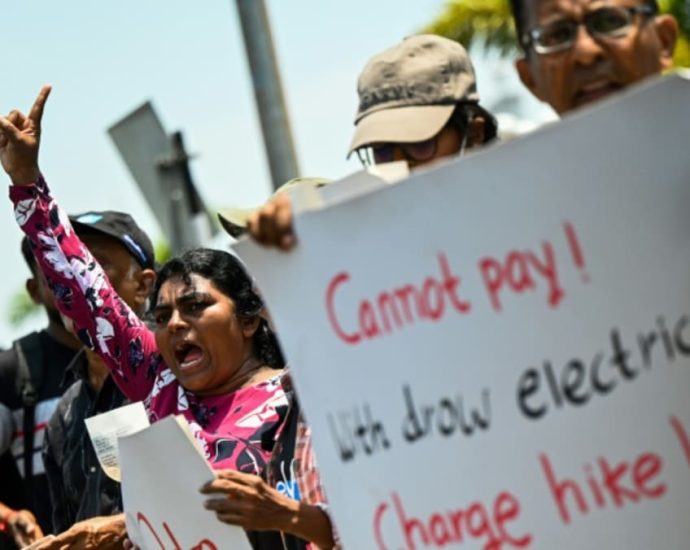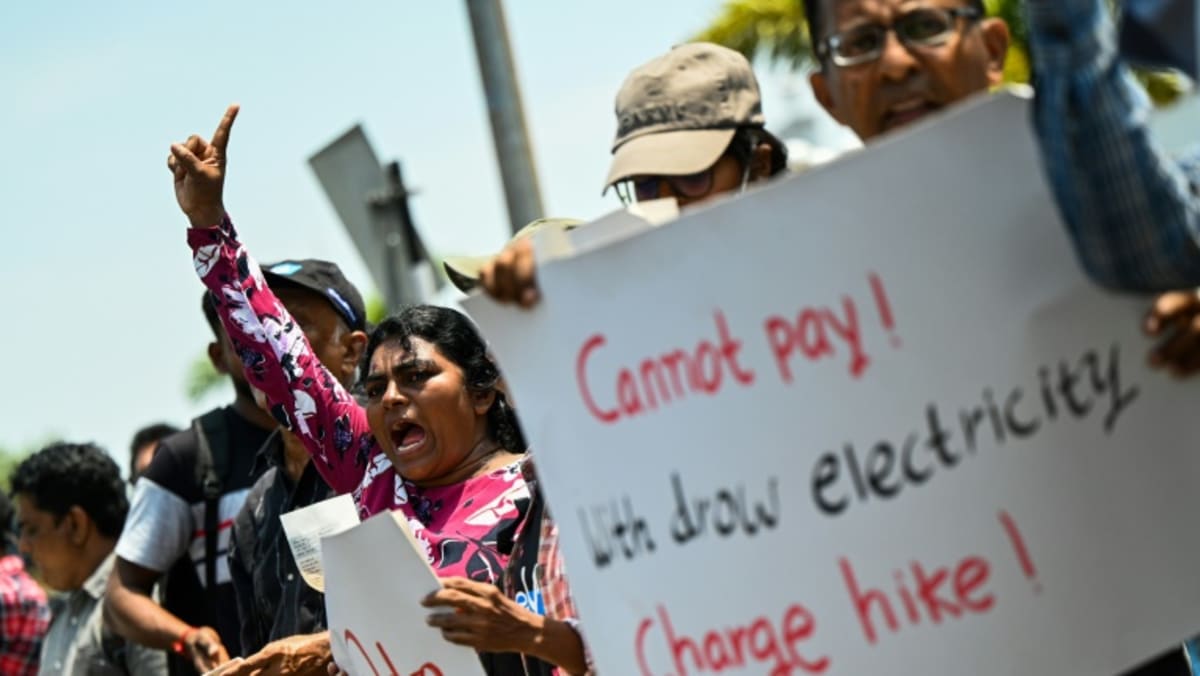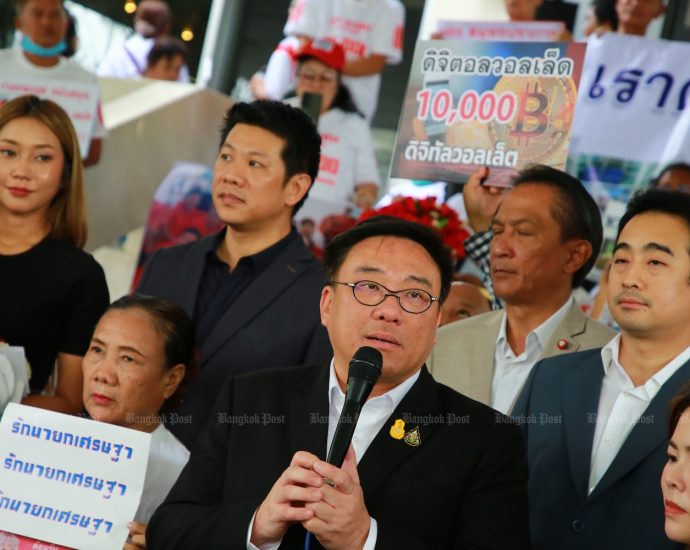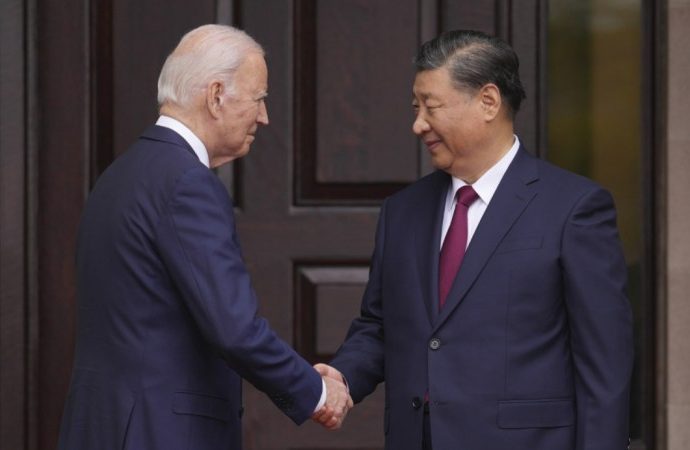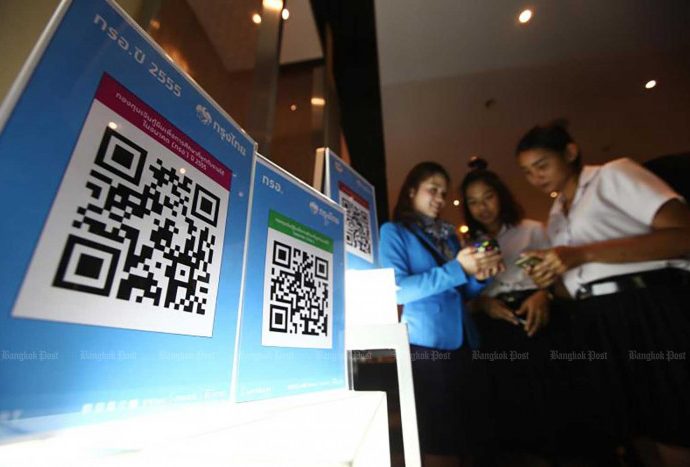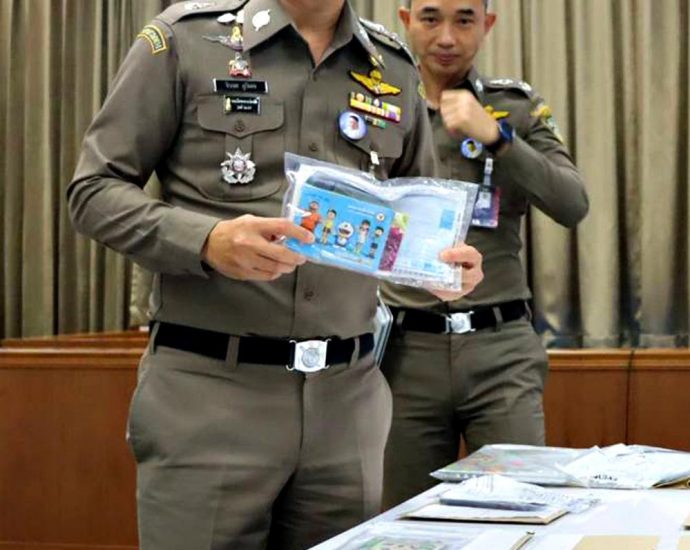Analysis: Move Forward takes step back

The main opposition Move Forward Party (MFP) is struggling to live up to its name as it is mired in internal strife, which is eating away at its popularity, according to political analysts.
For a party which has secured a solid footing in politics over a relatively short time, the MFP has established itself as a visionary party of the present and the future, which defies conventional norms, challenges the status quo and is driven by a young, reformist mindset.
It has championed a high standard of morality in staunchly defending fundamental values and rights, at the forefront of which lies gender equality and non-tolerance for transgressions, including sexual harassment. However, it is this very problem that the party has addressed poorly.
The MFP has consistently been dogged by accusations of misconduct by its members. None have been more damning than the sexual harassment allegedly committed by two of its constituency MPs, and how the MFP has handled the politically explosive scandals has backfired.
It all started with juicy revelations by an anti-MFP webpage called Wannee Kao Klai Kohok Arai (What Lies Have the Move Forward Party Been Telling Today?) that the party harboured two lawmakers who made indecent advances on their female volunteer assistants during the election campaign.
The expose instantly launched serious digging into the allegations by netizens, and before long, the identities of the two male MPs were revealed — Wittiphong Thonglour of Prachin Buri and Chaiyamphawan Manpianjit of Bangkok. The party started a probe, under duress, against the two MPs and at a snail’s pace.
A growing number of supporters and admirers then began losing patience over what they thought should have been a straightforward probe, arguing the evidence against the MPs — which mostly found its way onto social media in the form of online chatroom records — was clear as day.
Already, talk had swirled about the party dragging its feet to protect its own members and not being prepared to forsake its cherished stance of not being sidetracked from its moral high ground.
Some MFP supporters spoke via social media channels to express disappointment with the slow progress of the investigation.
Increasing pressure on the party prompted it to finally release an MP-executive panel decision on Nov 1 that begged even more questions than answers.
The party declared both Mr Wuttiphong and Mr Chaiyamphawan guilty of sexual harassment. However, despite facing identical allegations, the men were treated differently.
A vote saw the axe fall on Mr Wuttiphong. But while he was kicked out of the party, Mr Chaiyamphawan survived expulsion since there were not enough votes against him, as required by the party’s constitution, to oust him.
However, he was given an ultimatum: publicly admit to the alleged sexual misconduct and apologise to his three alleged victims and the public by Nov 3, or else. He was given only one day in which to do so.
As part of the ultimatum, the party also ordered him to compensate his alleged victims and stop any form of communication that would further damage their reputation, both directly and indirectly.
In addition, Mr Chaiyamphawan was warned not to engage in any further acts of sexual harassment.
But as it turned out, it was found that although Mr Chaiyamphawan said he accepted the party’s resolution passed on Nov 1, he had presented more damaging information against the victims in a bid to absolve himself. As a result, a meeting was convened again on Nov 7 to purge Mr Chaiyamphawan.
Even though Mr Chaiyamphawan was on the receiving end of indignation unleashed against him from within and outside the party, critics noted that the MFP was being trapped in a quagmire it had set for itself.
They argued that if the party executives and MPs had applied the same yardstick in the votes on Nov 1, both men would have been expelled, leaving no room for accusations of double standards. After learning of his expulsion, Mr Wuttiphong attributed his being booted out to his lack of connections within the party.
Days later, Mr Wutthipong held a bombshell press briefing in which he revealed he had accused an assistant of a high-profile party MP, who also sits on the MFP executive board, of pocketing kickbacks from a landfill company in Prachin Buri. He insisted this expose cost him his party membership.
According to Nuttaa “Bow” Mahattana, an activist and political commentator, the MFP’s internal probe, which was decidedly instrumental in handing what amounted to a political death warrant for the two MPs, was shrouded in secrecy.
She questioned the procedure the party adopted in considering the cases against the two men, suggesting that if they failed to measure up to standards, the MFP risked being labelled as having crucified its members in a kangaroo court. This would be most unhelpful to the party, which desperately needs to repair the damage to its image.
Is Srettha on borrowed time?

Srettha: Facing criticism over loan plan
When Prime Minister Srettha Thavisin dropped a bombshell on Nov 10 about the government’s plan to borrow 500 billion baht to finance the 10,000-baht digital money handout, a chorus of criticism erupted from all corners.
Along with concerns about the massive amount of debt the scheme would create and doubts over whether the stimulus plan can do as intended, critics zeroed in on whether the loan bill would meet the criteria outlined in the law governing fiscal and financial discipline.
Section 53 of the State Fiscal and Financial Discipline Act allows the Finance Ministry to propose a law for borrowing only in an urgent case where there is a need for continued spending to resolve an economic crisis and when waiting for the regular budget process would be too slow.
While the government views the current situation as a crisis, critics do not see eye to eye with them and insist that there is no economic crisis justifying the handout.
Senator Kamnoon Sidhisamarn argued that the loan bill, which has been sent to the Council of State, the government’s legal arm, to be vetted, did not satisfy any of the criteria in Section 53.
First and foremost, the loan bill must undergo a lengthy scrutiny process in the House of Representatives and the Senate, not to mention that it might be submitted to the Constitutional Court for a ruling. If the borrowing is urgent, why not opt for an executive decree which can be issued by the cabinet?
The digital wallet policy is a one-time handout to some 50 million people who must spend it within six months, so it does not require continued spending. Next, the country is not currently facing a crisis, at least not to the extent experienced during the Covid-19 pandemic, according to the senator.
Moreover, the budget bill for the 2024 fiscal year has yet to be deliberated by parliament, and the government can incorporate the digital wallet project into it, the senator said. If the giveaway is included in the annual spending plan, it will match with the Pheu Thai Party’s clarification to the Election Commission regarding the funding source for the flagship policy.
It was reported that the government’s loan bill caused jitters among those who attended the Nov 10 meeting of the digital wallet committee chaired by Mr Srettha.
Near the end of the meeting, Pakorn Nilprapunt, secretary-general of the Office of the Council of State, was said to have expressed concerns about legal issues and possible ramifications if the policy failed to comply with the law.
It was reported that at one point, Bank of Thailand (BoT) governor Sethaput Suthiwartnarueput mentioned the National Anti-Corruption Commission’s (NACC) interest in the policy. He reportedly asked the meeting to record his remarks.
Some committee members, especially those from the coalition partners, appeared visibly anxious.
It remains to be seen how the Council of State will advise the government.
Several political observers believe even if the Council of State rules the loan bill can proceed, there is a slim chance it will be passed by parliament, no matter what the prime minister says.
Before leaving for Apec meetings in San Francisco early this week, Mr Srettha said he had complete confidence that the government’s partners would back the loan bill.
“I am confident the government has the solid support of 320 votes in parliament [to ensure passage of the loan bill],” he said.
Given that the digital wallet policy is on the NACC’s radar and triggering complaints and calls for its scrutiny, MPs from the coalition parties may have second thoughts about giving it the go-ahead, observers said.
They said that, eventually, the loan bill would end up in the Constitutional Court, and if it is found to be unlawful, the ruling Pheu Thai Party and its coalition partners could be held accountable. Even if the bill manages to sail through the House, it will hit a roadblock in the Senate.
Senator Chalermchai Fuengkhon revealed that several fellow Upper House members disagreed with the borrowing plan, and they could petition the Constitutional Court to rule on the legality of the bill. One-tenth of senators, or 25 of them, can initiate the process.
According to some observers, Mr Srettha’s fate is tied to the loan bill. As a financial law sponsored by the government, if it fails to clear the House, the premier must choose between resigning and dissolving the House.
However, they say this could prove to be an exit strategy for Mr Srettha, whose popularity rating during the first two months is lower than expected, and he may not last a full four-year term.
Stepping in to take his place would be none other than Pheu Thai leader Paetongtarn Shinawatra, who brought herself into the inner circle by attending a coalition get-together dinner on Nov 8, according to observers.

